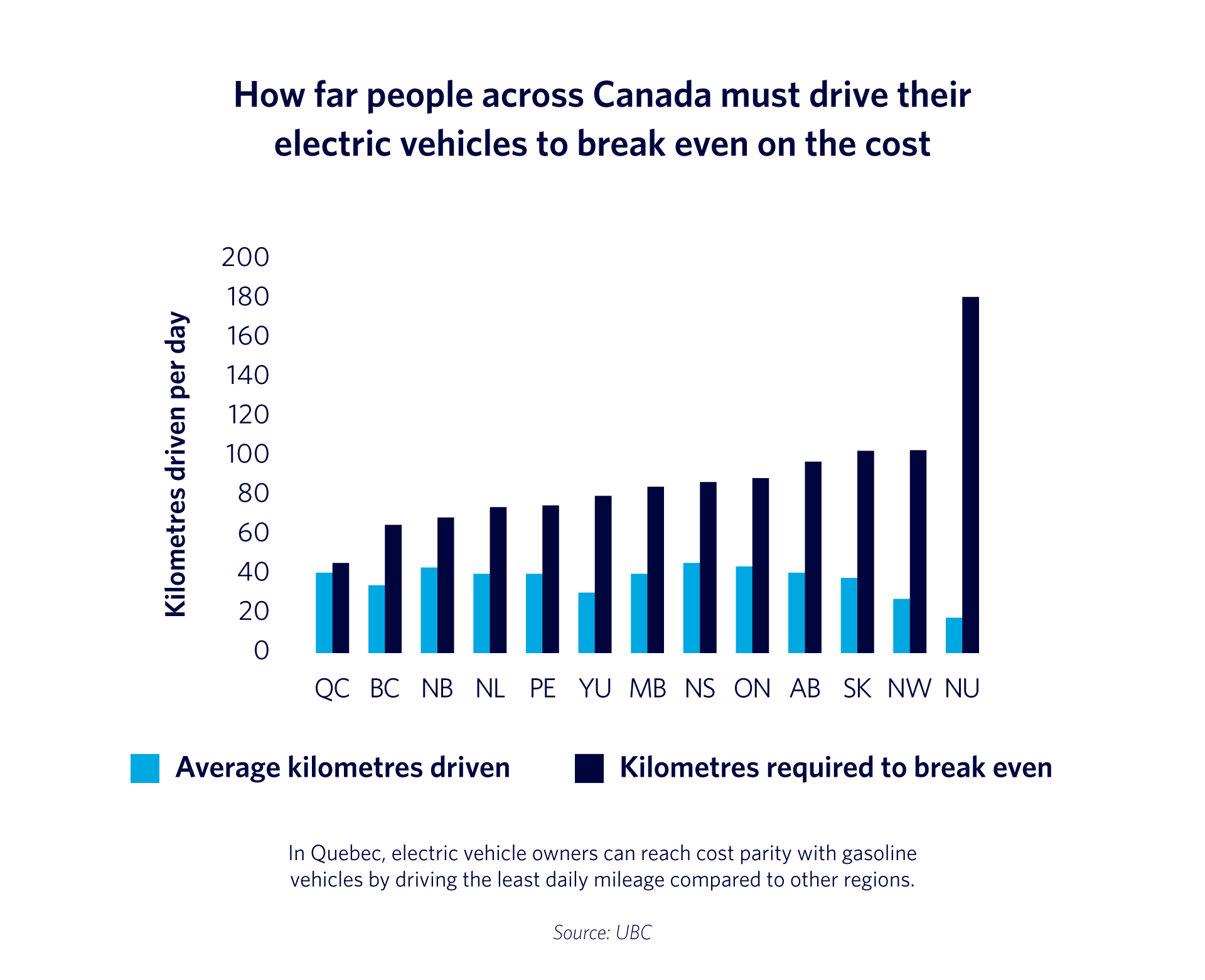This article originally appeared on UBC News.

Location, location, location
The researchers analyzed how far people need to drive their electric car to break even on the cost, factoring in the impacts of tax rebates and tax rates, charging costs, typical distance households travel in a region, and electricity costs—all of which vary from region to region.
They found Quebec had the biggest advantage, followed by B.C. and Manitoba, while Nunavut came up last.
“In Quebec, an electric car owner must travel at least 46 kilometres per day to come out ahead in comparison with owning a traditional car. In Nunavut, this number rises to 180 kilometres,” says study author Bassam Javed, a PhD candidate at the Institute for Resources, Environment and Sustainability (IRES).
Small is beautiful
These results suggest that if you’re looking to make the switch to electric, choosing a smaller, basic EV can realize more savings than a luxury electric car, says study author Dr. Amanda Giang, a professor in the department of mechanical engineering and at IRES.
As the cost of switching to EVs will be higher in some places and for some households, targeted interventions will be needed to address the affordability gap. Dr. Giang added: “Canada needs to take many paths towards clean and affordable transportation for all, which means not only supporting transitions to EVs, but also public transit and active transport.”
